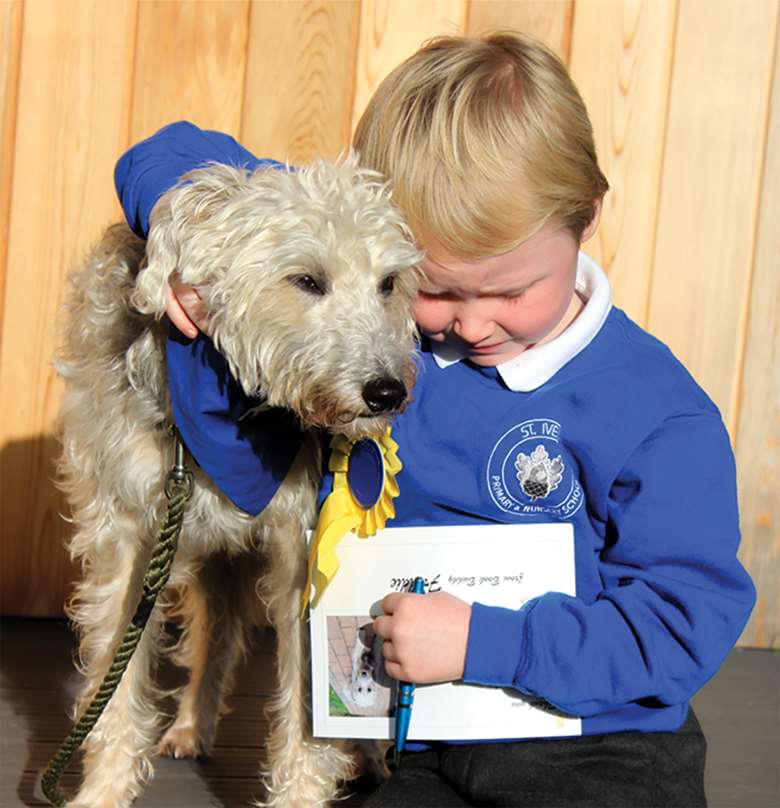How dogs improve reading ability
Emily Rogers
Thursday, June 1, 2017
Project helps children enjoy reading and increases their confidence and self-esteem.

PROJECT
Be Bookwise
FUNDING
Funded in 2012 with a one-off £2,500 grant from The Kennel Club Charitable Trust's Bark & Read Foundation. Now delivered independently to schools, unfunded and free of charge
BACKGROUND
Caring Canines provides "dog-assisted therapy" to care homes and day centres in Bournemouth. The charity was inspired by US-based programme Reading Education Assistance Dogs (Read) to launch its Be Bookwise project. This started with four children and four dogs at a Bournemouth primary school in March 2009. It is now helping 19 children in six schools.
ACTION
Dogs are assessed for suitability before being assigned to the scheme. They must be "gentle, responsive to their owners and well-controlled", explains Caring Canines co-founder Sue Dennett.
Struggling readers are referred by schools. Each is paired with a dog, known as a "book buddy", and works one-to-one with the dog and owner during weekly sessions lasting up to an hour and spread over one term. The child reads to the dog for 20 minutes. A staff member sits quietly in the room but does not intervene. Children may "clam up" if they think a teacher is listening, explains Dennett.
The reading is followed by 10 minutes of word games to reinforce literacy skills, then some interaction with the dog, which may include grooming, walking it around the playground or learning dog-training tips.
Dennett says the dog helps through its "non-judgmental, calming presence".
"You could talk absolute drivel to a dog and it won't criticise or laugh, it'll just sit and listen," she explains. "A relaxed, happy child learns more. The dog helps facilitate learning and listening."
OUTCOME
A 2014 South African study explored the Read programme on which Be Bookwise is based. It saw 102 struggling seven- to 13-year-old readers assigned to four groups: 27 read to a dog, 24 read to an adult, 26 to a teddy and the remaining 25 "control" pupils continued with school as usual.
Researchers from Stellenbosch University found the groups started with similar Neale Analysis of Reading Ability scores. But after 10 weeks, the dog group's average "reading comprehension age" score increased to 7.34, compared with 7.01 for the adult group, 6.71 for the teddy group and 6.73 for the control group. Eight weeks after intervention, the dog group scored 8.0, the adult group 7.44, the teddy group 6.94 and the control group 7.17.
If you think your project is worthy of inclusion, email supporting data to derren.hayes@markallengroup.com




